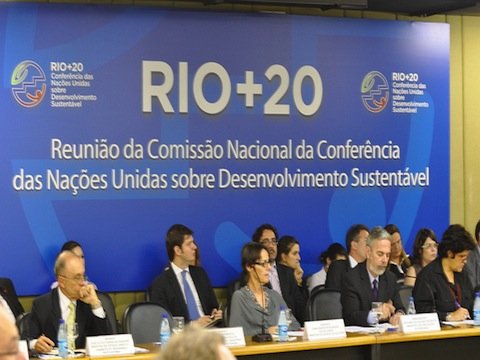A radical new approach to innovation is urgently needed to ensure a fair and green economy and avoid reversing progress made on global poverty reduction, according to leading scientists.
Ahead of the United Nations Conference on Sustainable Development, or Rio+20, the ESRC (Economic and Social Research Conncil) STEPS (Social, Technological, and Environmental Pathways to Sustainability) Centre calls on negotiators to rethink the way science and innovation can contribute to the Sustainable Development Goals (SDGs) that are likely to emerge from Rio. Rio+20 might be a unique opportunity to enhance the role that science, technology and innovation can play in building an environmentally sustainable and socially just green economy at a global level. These topics have been introduced at Planet Under Pressure and will be discussed more in detail during Rio+20 talks.
“The stakes are too high at Rio+20 for a business-as-usual approach,” said Professor Melissa Leach, director of the STEPS Centre. “We are pushing up against planetary boundaries that are near, or already past, breaking point. Science, technology and innovation can help avert catastrophic developmental and environmental damage. But only if we move beyond outdated notions of whose innovation counts, to recognise the vital role different forms of innovation can play.”
“We would like to see Rio+20 provide a global framework supporting different forms of innovation that address sustainable development challenges at local, national and global levels. Beyond setting targets, this is about enabling the grassroots and enhancing innovation capabilities for the longer-term” added Dr. Adrian Ely, STEPS Centre head of impact and engagement.
The STEPS Centre has drawn up a set of recommendations for ways in which Rio+20 could pay also attention to the bush-paths and mountain-trails of grassroots innovation trodden by less high-profile users, workers, consumers, citizens, activists, farmers and small businesses.
Recommendations – submitted to the zero draft of the Rio+20 outcome document – cover five areas for action: agenda setting; funding; capacity building; organising and monitoring, evaluation and accountability. Recommendations include:
- UNEP/ the proposed new specialized agency on environment adopting the assessment, promotion and co-ordination of innovation for sustainable development as part of its mandate
- Transparent corporate reporting on R&D investments which focuses on poverty alleviation, social justice and environmental sustainability
Source: Eurekaalert!
For more information, see the official Institute of Development Studies website
Photo by MREBRASIL




